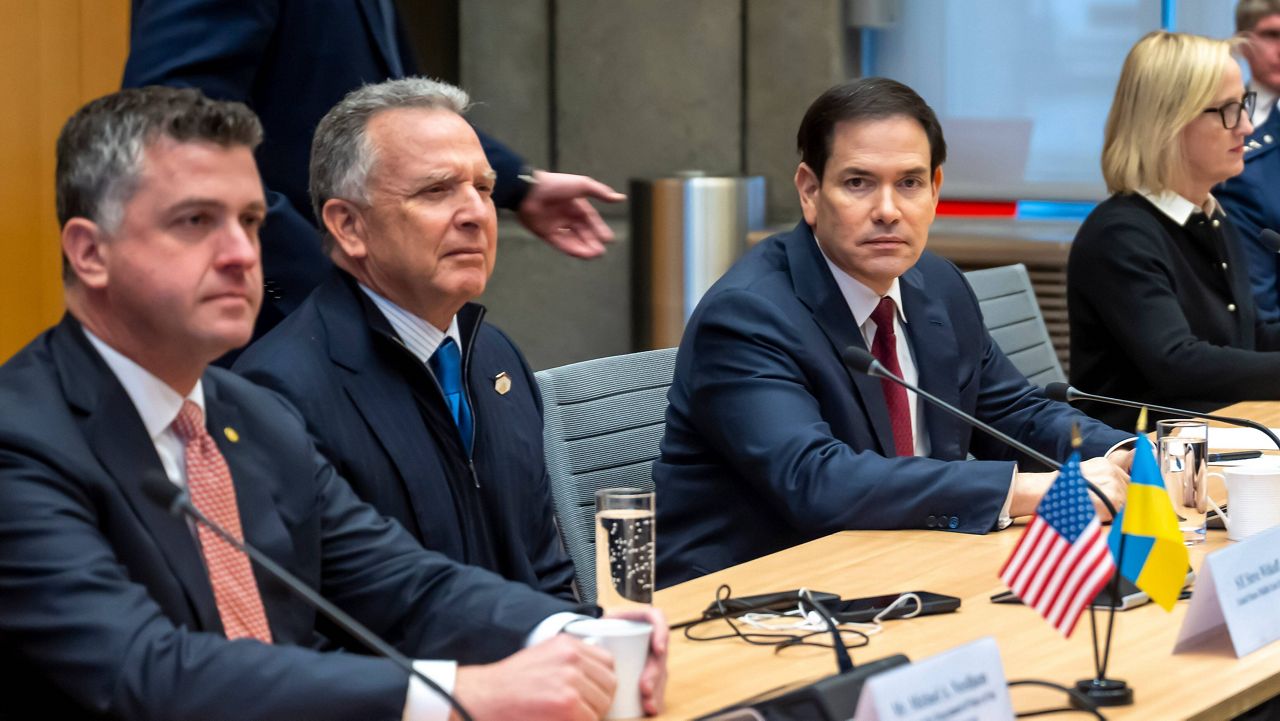Washington — Senate Republicans are mulling a possible rule change to allow them to more swiftly confirm President Trump’s nominees amid Democrats’ efforts to slow the process in protest to the president’s policies.
Senate Majority Leader John Thune told reporters Wednesday that interest is “growing quickly” among Senate Republicans for a change to the rules governing the nominations process as he’s bemoaned an “unprecedented level of obstruction and delay” by Democrats in recent days.
“There’s certainly interest in looking at options that might enable us to break the logjam and expedite consideration of nominees in a way that, in the end, would benefit both parties when their party has the presidency,” Thune said.
With around 1,300 positions requiring Senate confirmation, the process is an arduous one that has become more cumbersome in recent years. The average time to confirm a president’s nominee has nearly quadrupled during the last six administrations, according to the Center for Presidential Transition. And Democrats have taken their slow-walking of Mr. Trump’s nominees to new extremes in recent months, putting up procedural hurdles to delay the confirmations nearly across the board.
Still, the opposition by Democrats has not been universal, since any single senator can effectively stall the path to swift confirmation.
Tom Williams/CQ-Roll Call, Inc via Getty Images
In recent years, both Democrats and Republicans have made pushes to change the confirmation process, like by cutting down the time requirements for the nominations and reducing the number of votes needed to a simple majority.
Senate Republicans have been tight-lipped about the possible new changes to the process, which would represent a further change to the institution that has traditionally been resistant to change. Sen. John Cornyn, a Texas Republican, told CBS News that Senate Republicans are “actively discussing” possible changes, calling the obstruction of Mr. Trump’s nominees “unconscionable.” He noted that he would say the same if the dynamic was occurring under a Democrat.
Sen. Markwayne Mullin, an Oklahoma Republican, told CBS News that “we are actually not looking to do reforms, but we don’t have a choice.”
“This is Chuck Schumer’s fault. He’s the one that’s forcing this. And, and so I don’t know what he expects to happen, but we will have to have some reforms if this is the way they continue to operate,” Mullin added.
Sen. Tommy Tuberville, an Alabama Republican who during the Biden administration delayed the nominations of hundreds of military officers, argued that the chamber should remain in session to get the nominations done. “We ought to stay if we don’t get as many as we want to get,” he said.
“President Trump says he wants us here,” Tuberville said. “We work for him.”
Earlier this month, Mr. Trump called for Senate Republicans to stay in session into their August recess to get the nominations done. And some other Senate Republicans, like Sen. Mike Lee of Utah, have echoed the sentiment. Lee has argued that the GOP should either “exhaust” Democrats by working through August — or give Mr. Trump the ability to make recess appointments.
Asked about recess appointments, which afford the president the ability to temporarily fill vacancies while the Senate is in recess, Thune suggested that Senate Republicans would be more likely to “make a modification to our rules” to sidestep Democrats’ delay.
“At some point, we may need to look at doing things differently on nominees generally, if the Democrats continue this path of obstruction that they’re on right now,” Thune said.
Meanwhile, Mr. Trump took aim at another facet of the Senate’s confirmation process late Tuesday in a post on Truth Social, urging Sen. Chuck Grassley, an Iowa Republican who leads the Senate Judiciary Committee, to end blue slips — a practice that gives senators veto power over judicial nominations in their home state.
Thune told reporters that the blue slip process is “something that’s been used for a long time by both sides, and neither side has violated its usage in the past.”
“I don’t sense any rush to change it, and I think the key is to make sure that we’re making good headway on moving the list of judges that are on the President’s list,” he added.


